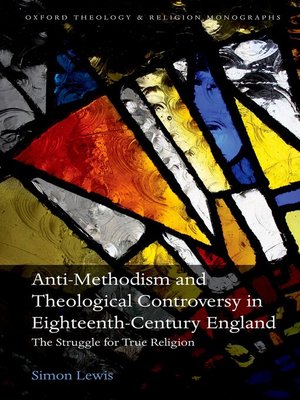Anti-Methodism and Theological Controversy in Eighteenth-Century England
ebook ∣ The Struggle for True Religion · Oxford Theology and Religion Monographs
By Simon Lewis

Sign up to save your library
With an OverDrive account, you can save your favorite libraries for at-a-glance information about availability. Find out more about OverDrive accounts.
Find this title in Libby, the library reading app by OverDrive.



Search for a digital library with this title
Title found at these libraries:
| Loading... |
John Wesley and George Whitefield are remembered as founders of Methodism, one of the most influential movements in the history of modern Christianity. Characterized by open-air and itinerant preaching, eighteenth-century Methodism was a divisive phenomenon, which attracted a torrent of printed opposition, especially from Anglican clergymen. Yet, most of these opponents have been virtually forgotten. Anti-Methodism and Theological Controversy in
Eighteenth-Century England is the first large-scale examination of the theological ideas of early anti-Methodist authors. By illuminating a very different perspective on Methodism, Simon Lewis provides a fundamental reappraisal of the eighteenth-century Church of England and its doctrinal priorities. For anti-Methodist
authors, attacking Wesley and Whitefield was part of a wider defence of 'true religion', which demonstrates the theological vitality of the much-derided Georgian Church. This book, therefore, places Methodism firmly in its contemporary theological context, as part of the Church of England's continuing struggle to define itself theologically.






